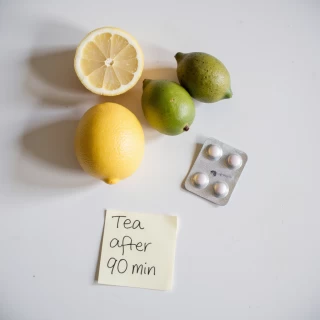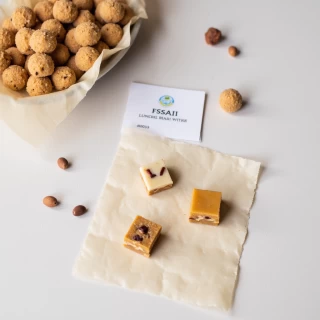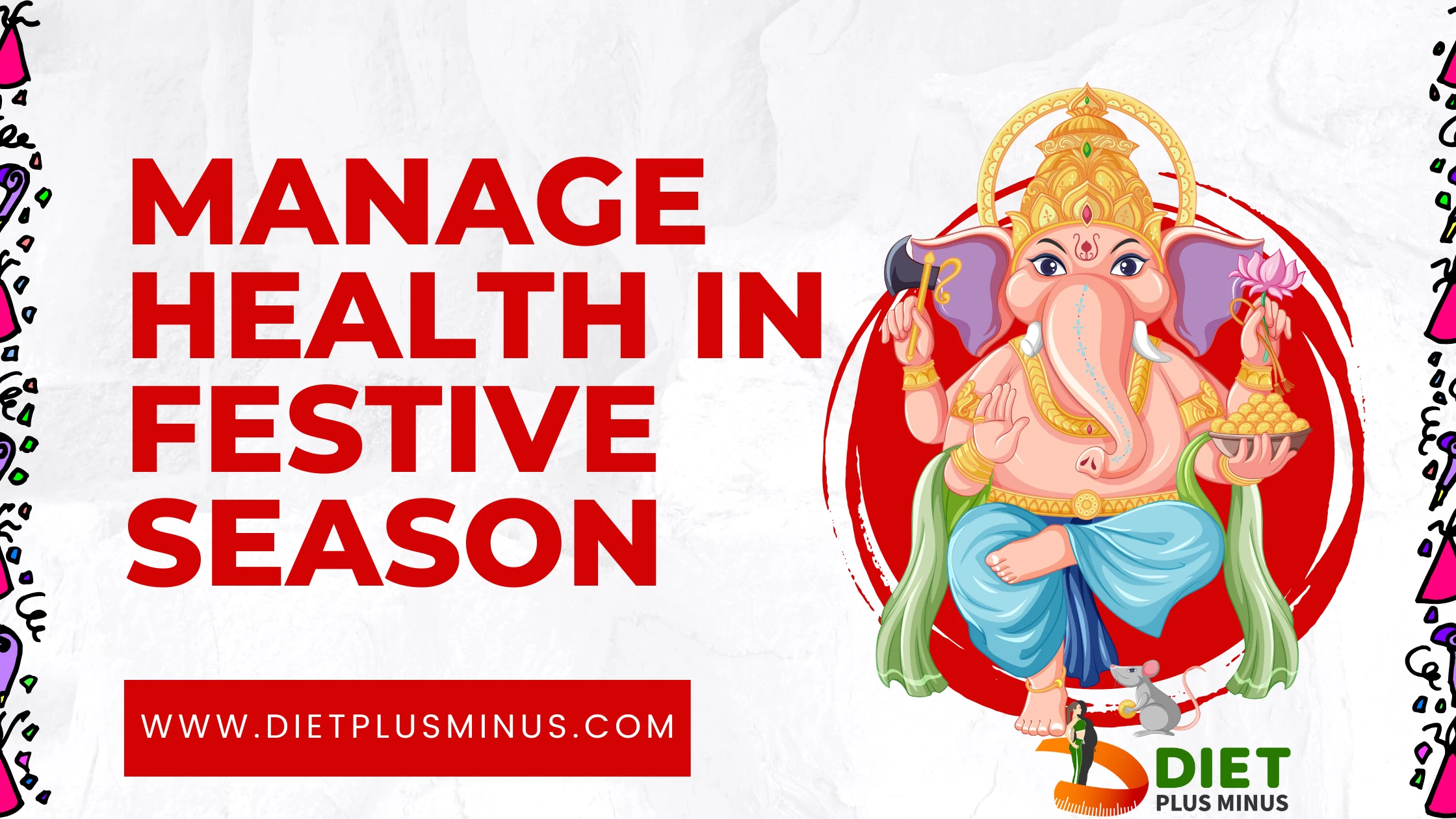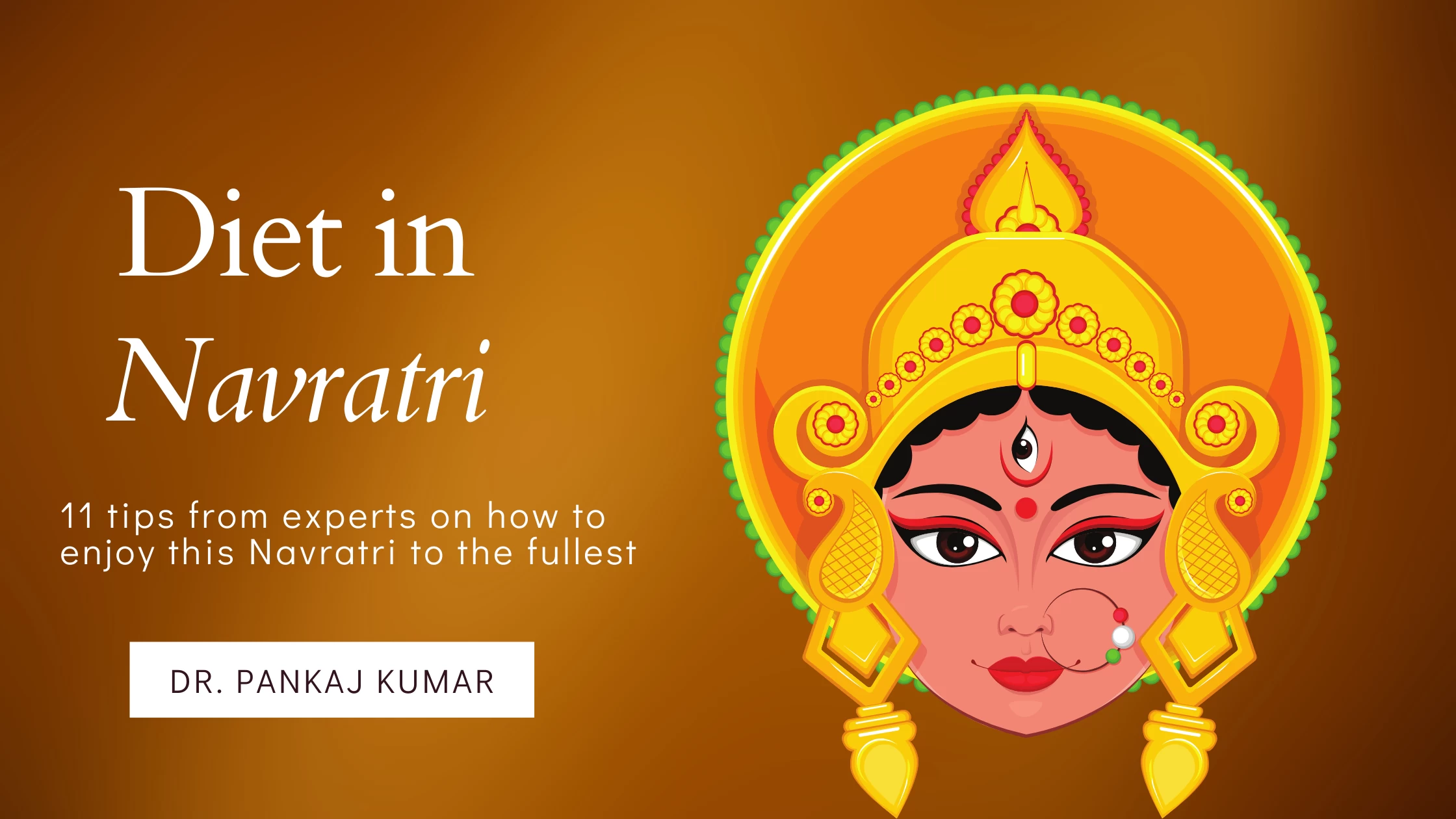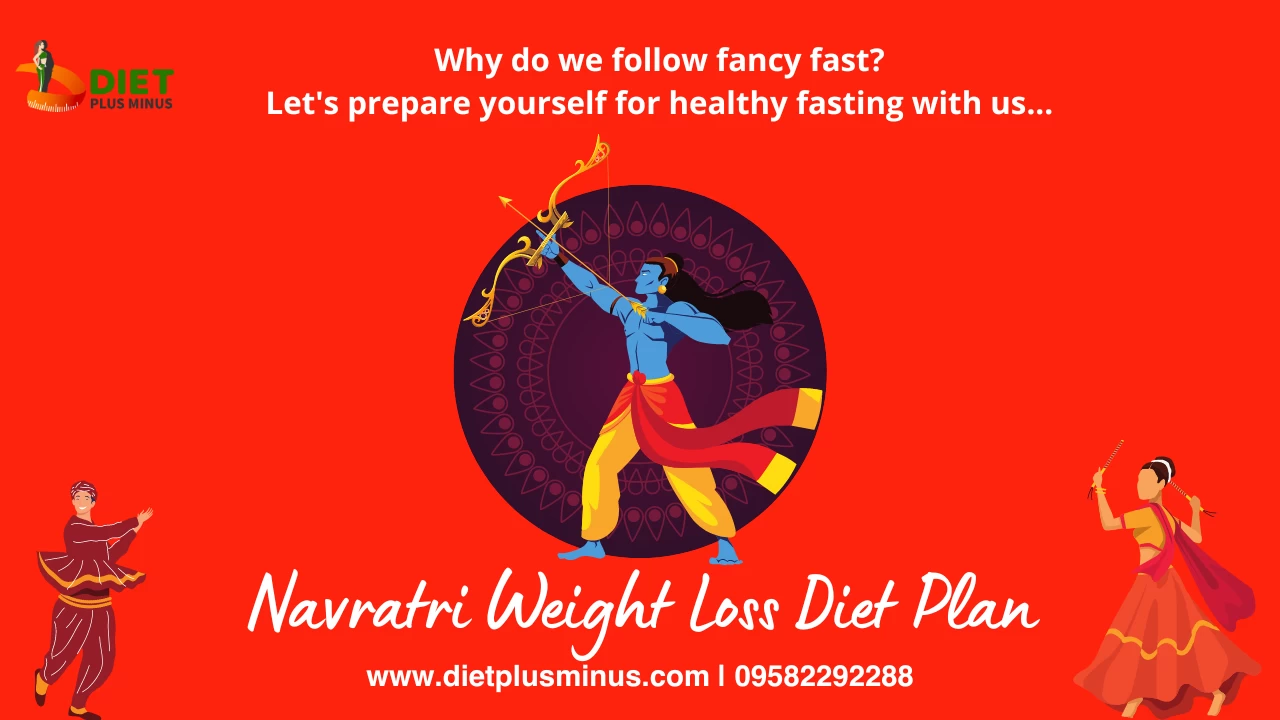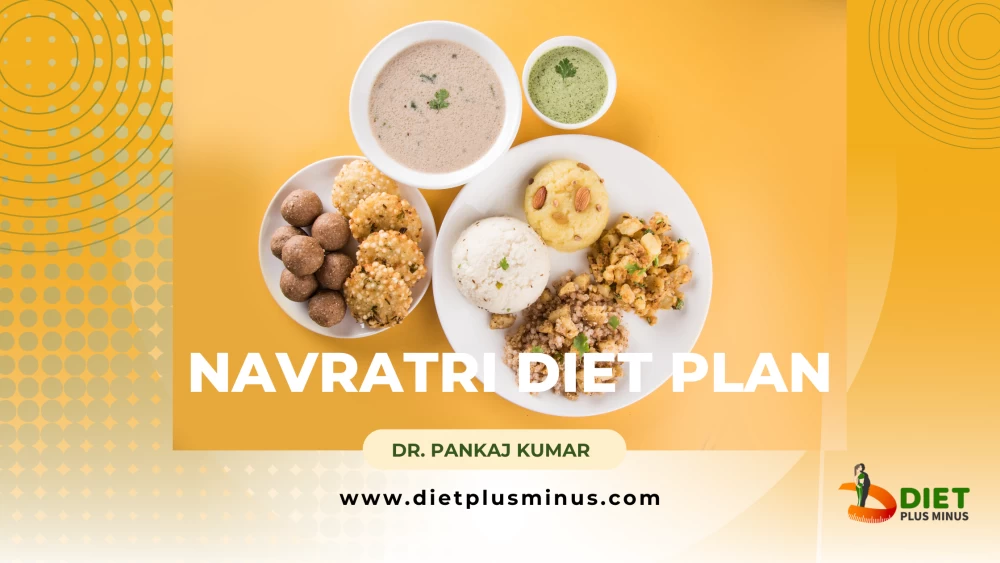
- 5th August 2022
Table of Contents
The festival of Navratri, which culminates in the festival of Dussehra, is just around the corner. Each of the festival's nine days is devoted to one of Shakti's nine manifestations.
Navratri is a major Hindu festival that attracts devotees from all over India, especially in the north and the south. Nine days of chanting, dancing, and praying to Goddess Durga are the order of the day at this Hindu festival.
Navratri is a time of fasting for many people across the country. Observing a fast these days takes on a different meaning for each individual. Some people fast to savor the mouthwatering foods prepared for the festival, while others do so for religious reasons.
A good way to get rid of toxins, lose weight, and improve digestion is to go on a fast. This time of fasting is considered the best time to cleanse and strengthen the body. During a fast, most people avoid consuming pulse, grain, and meat, which would leave their bodies deficient in essential nutrients. In addition to making the most of this window of opportunity, it's critical to maintain a healthy lifestyle and a diet that will see you through the upcoming nine days of fasting. As a result, we've put together this guide to help you stay on track with your fast while still having a good time. Fasting has numerous health benefits that can help you maintain a healthy and active lifestyle. Here are some tips to manage your diet during Navratri:
Plan your everyday menu
Even though fasting requires a major shift in your eating habits, you can maintain your energy levels throughout the day with proper planning and healthy snacking plans. Some food items which you can add during the fast include buckwheat flour (kuttu ka atta), amaranth flour (rajgire ka atta), sabudana, pumpkin, and dry fruits, makhana (lotus seeds), sweet potatoes, milk, and dairy products.
During fast opt for sattvic foods
Instead of heavy, difficult-to-digest meals, opt for lighter, sattvic alternatives. Fruits and some vegetables are staples of a sattvic diet. When you're fasting, it's important to maintain a clean internal environment for your body.
Keep yourself hydrated
Keeping yourself hydrated while fasting is a critical step that should not be overlooked. You can rely on fluids of your choice to keep your body at an adequate level of fluids, vitamins, and minerals, including plain water, low-fat milk, and fresh fruit juices like watermelon or orange. Staying hydrated during these nine days of festivities will help you stay active.
Eat at regular intervals
Fasting often results in prolonged periods of starvation. Rather than eating a large meal, eat small portions of fruits, nuts, and vegetable juices to avoid feeling weak, fatigued, or having a headache.
Keep a check on total calorie intake
You should keep a check on your total daily calorie intake. Avoid fried foods. If you eat one large meal then eat only fruits and dry fruits the whole day.
Don’t binge on food
If you only eat once a day, make sure the portion size doesn't double. Even if you only eat once a day, limit yourself to a small portion size. Consuming too much food will only lead to weight gain.
Avoid fried foods
Avoid fried foods like pooris and tikkis, which are high in calories and unhealthy fats, in favor of a healthy diet. Dosas and idlis made from Kuttu flour should be included in the meal. Snack on almonds, cashews, and raisins as well.
Add fiber to your diet
Make sure to eat a diet rich in fiber. Increase your intake of fiber-rich fruits and vegetables instead of starchy ones like potatoes to help you feel full for the whole day.
Avoid sugar
Whenever possible, steer clear of refined sugar. Sugar, which is highly processed and unhealthy, is a significant concern. Natural sugars like sugarcane and jaggery are better for you than refined sugars.
Choose healthy snacks
While fasting, your hunger pangs come at odd times. Snack on makhana (fox nuts), sweet potato fries, nuts, and fruits when you're craving something fried. Moreover, they are a great source of nutrients and calories.
Take proper rest and avoid stress
The festivities and fasting can leave you exhausted. Another important health tip to keep in mind is to avoid putting yourself under unnecessary stress. Don't put too much strain on your body and take breaks as needed.
Some tips for healthy Navratri fasting
- It is always preferable to eat small, frequent meals as opposed to going hungry. This will help to keep blood glucose levels balanced and keep you from becoming easily fatigued.
- Amaranth is an excellent source of protein because the body lacks a regular source of protein during this time. A hearty breakfast of amaranth porridge and milk, or daliya and a smattering of vegetables can keep you going strong throughout the day.
- Vegetables like cabbage, tomatoes, capsicum, bottle gourd, and so on can be used to supplement high-carbohydrate foods like potatoes. Instead of deep-frying the vegetables, try roasting, grilling, or baking them.
- You can also make chapatis or pooris with the help of Kuttu to compensate for the lack of carbohydrates and protein. This is a good time to eat Samak rice, which is also good for the digestive system. Have it with lots of vegetables.
- Sweet cravings can be satisfied with a variety of fruits, kheer (rice pudding), raita, and Samak kheer. Deep-fried foods and readily available packets of salted snacks should be avoided. This is because they are extremely high in sodium and fat. No nuts are prohibited from being consumed.
- Jaggery and honey are healthy alternatives to refined sugar that can be used in place.
- Keep yourself hydrated unless you're on a 'nirjala vrat,' or water-free fast. Drinking plenty of water is a great way to keep your body hydrated. Coconut water, buttermilk, green tea, and lemon water are all beneficial additions to your water.
- The dinner should be light during this time if a heavy lunch is consumed.
- It is recommended that only rock salt or sendha namak be used in cooking. As a result, blood pressure levels are kept in check and mineral absorption improves.









